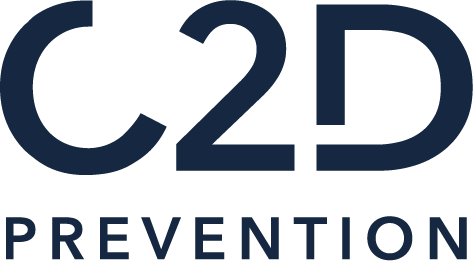WORKSHOP
Mental Health
Enhancing Well-being and Psychological Safety at Work

Mental health is now recognized as a fundamental pillar of workplace performance and safety. Yet, it remains a topic that is often taboo or misunderstood. In the face of pressure, mental overload, and increasing demands, psychological imbalances can weaken employees and impact team effectiveness.
The Mental Health workshop has been designed to raise awareness among teams about the importance of sustainable mental balance, directly connected to collective well-being, the prevention of psychosocial risks, and the overall quality of the work environment. Through practical tools, role-playing scenarios, and a supportive atmosphere, participants develop the skills to identify, express, and manage mental health-related signals.
OBJECTIVE
CONTENT
- Case studies and testimonials
- Topics covered:the 4 pillars of mental health, shared vigilance, compassionate communication
- Group discussions and exercises
- Tools to maintain mental balance
FORMAT
- Coaching :interactive discussions, role-playing, case studies
MAKE PREVENTION A REFLEX!
REGISTER YOUR COMPANY NOW
and ensure a safer work environment for everyone!
Format & Target Audience
This workshop is available either in-person or online (delivered by a certified VILT – Virtual Instructor-Led Training coach).
It is open to all employees, supervisors, managers, and leadership team members.
Ideal group size: 6 to 12 participants to encourage interaction and the sharing of experiences.
Learning Objectives
- Understand the core components of mental health and their interrelations
- Identify signs of imbalance in oneself or others
- Adopt a shared vigilance approach (see, dare to speak, know how to express, know how to receive)
- Strengthen personal nd collective mental stability
- Develop interpersonal habits that support psychological safety
- Contribute to a culture of care and sustainable prevention
Educational Methodology
This workshop follows a participatory and immersive teaching approach:
- A balance of accessible theoretical input and active experimentation
- Case studies grounded in real professional contexts
- Small-group work to foster dialogue and attentive listening
- Facilitated by an expert in mental health and group dynamics
Depending on the time available)
Workshop Programme
1Understanding Mental Health and Its Foundations
- Interactive exploration: Participants discover the four pillars of mental health-emotional, cognitive, social, and physica-and how they intersect in professional settings.
- Guided discussions: Through real work scenarios, they identify the consequences of overlooked imbalances: reduced focus, errors, isolation, conflicts…
Objective: Establish a clear, accessible, and actionable understanding of mental health in the workplace.
2Shared Vigilance: A Collective Prevention Tool
- See: identifying early warning signs
- Dare to speak: overcoming communication barriers
- Know how to speak: expressing concerns without harm
- Know how to receive: listening without reacting defensively
3A Simple Tool to Maintain Mental Balance
Presentation of a practical method:
A hands-on tool is introduced to help individuals assess their mental state and act on personal levers (resources, needs, signals).
Pair or small-group exercises:
Applied practice using real examples from participants’ work environments.
Objective:
Equip individuals with a self-directed method to manage their mental balance and support others in doing the same.
4Practicing Compassionate Communication through Role Play
Real-time scenarios and feedback:
Participants engage in sensitive dialogues (e.g., approaching a struggling colleague, responding to a personal alert).
Group debrief:
Identification of best practices and managing emotions in tense situations.
Objective:
Embed concrete relational skills to prevent conflict and foster collaboration.
5Individual and Collective Action Plans
Reflection and projection session:
Each participant designs a personal or team improvement plan based on workshop learnings.
Objective:
Move from awareness to action through realistic, sustainable commitments.
Why choose
this Workshop ?
To prevent psychosocial risks, improve workplace well-being, and foster an environment conducive to engagement, this workshop helps to:
Raise awareness of mental health issues
among all employees
Encourage constructive expression
of warning signs
Instill shared vigilance practices
within teams
Reduce situations of distress,
isolation, or disengagement
Contribute to a compassionate,
supportive, and high-performing organizational culture
Recommended Complementary Workshops
Conclusion & Call to Action
By integrating the Mental Health workshop into your prevention strategy, you empower your teams
to better handle daily challenges. Beyond awareness, this workshop offers practical tools to build resilient teams
that can speak up, take action, and support one another over time.
Contact us to include this workshop in your workplace health and quality-of-life initiatives.
